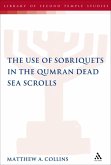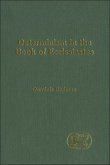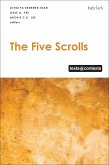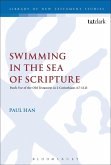Tukasi explores the theme of the determinism as articulated in the Rule of the Community and the Fourth Gospel with the aim of uncovering the relevance of petitionary prayer within the framework of the determinism of each book.
Chapter one sets out the background against which the themes of determinism and petition in 1QS and John should be understood. Chapter two explores the nature of the determinism in the 1QS. The determinism is cosmological, soteriological, and eschatological. Chapter three demonstrates that the contents of the petitions are in harmony with the determinism articulated in 1QS. In our study of the Fourth Gospel, chapter four demonstrates that the determinism in John is concerned with the predestination of certain people who are designated as "the given ones" of the Father. It also shows that the determinism of the Fourth Gospel is concerned with the mission of the Son. Chapter five analyzes the petitions in John against the background of Johannine determinism. It argues that the petitions are shaped by the determinism articulated in the text.
The conclusion sums up the similarities and differences between John and 1QS in their expression of determinism and petitionary prayer, and draws attention to the implications on previous and future scholarship on the relationship between John and the Scrolls.









